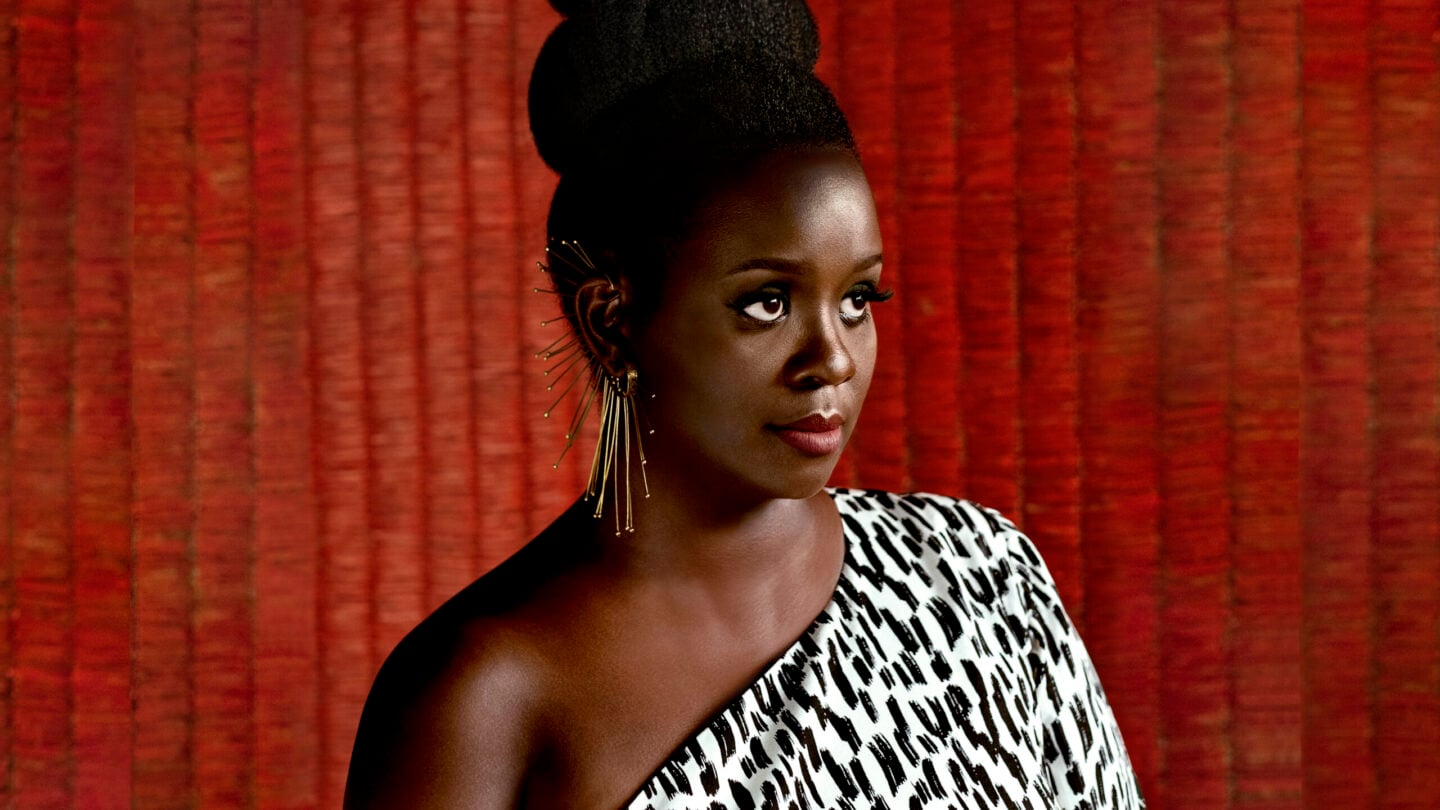The soul-stirring music of South African singer Miriam Makeba earned her affectionate nicknames such as “Mama Africa” and “the First Lady of Africa.” Makeba’s music was inextricably linked to her human rights activism, which made waves worldwide. Her immortal voice is celebrated in a new album by the artist Somi with “Zenzile: The Reimagination of Miriam Makeba.” This Grammy-nominated singer and musician recently relocated to Atlanta, and she joined “City Lights” host Lois Reitzes via Zoom to talk about her tribute album.
Interview highlights:
The extraordinary and under-recognized life of Miriam Makeba:
“She came over to New York in 1959 under the auspices of Harry Belafonte. She went on to become the first African artist to win a Grammy. She became, in many ways, single-handedly, the face and the voice of the anti-apartheid movement, really brought it into global awareness because of her celebrity in the United States. She was best friends with Nina Simone. She was married to Stokely Carmichael,” Somi listed. “I mean, there are so many reasons that we should know more about Miriam Makeba, and I think when you realize what her story is, it’s a bit surprising … given that she was moving in the upper echelons of cultural and political society in that time.”
Reflecting the struggles of apartheid in Makeba’s songs:
“Speaking about the idea of struggle, there’s a song “Hapo Zamani,” which was originally recorded and written by a woman by the name of Dorothy Masuka, a wonderful singer from Zimbabwe, and Miriam Makeba’s contemporary,” Somi said. “It really speaks about what it would be, once … those in exile come back to South Africa, and how the oppressors should run, frankly; that’s actually the literal translation, is that they should run when [the exiled] come because they’re going to come back and take their rightful place in their homeland.”
“It was really quite special to be able to record a song called ‘Nonqonqo,’ which literally means ‘for those we love,’ and it’s a song that honors those who fought on behalf of freedom and died in that struggle, or were put in prison during that struggle. So obviously, people like Nelson Mandela and Sobukwe, and all the different freedom fighters. So that song, having the opportunity to record with Ladysmith Black Mambazo, was also quite moving,” said Somi.
On “Dreaming Zenzile,” a stage play about Makeba written and performed by Somi:
“It’s meant to be a companion project to the album. I started this larger cultural memory project seven years ago. I decided I was going to reimagine some of her music and make a record, but the more I started leaning into her catalog and wanting to understand what she was going through personally, professionally, just understand the biographical context around the making and performing of these songs, the more I realized I didn’t know, even despite being a life-long admirer of Miriam Makeba,” said Somi.
She went on, “And so began the journey of trying to make something with a little bit more dimensionality, and not to say that an album isn’t dimensional, but you know, songs are ephemeral in nature, right? There’s a reason we put a song on and play it on repeat, trying to stay inside of that song. And so what I love about theater is … it’s about world-making, right? So this was an opportunity to try to construct the world of Miriam Makeba and invite people to reflect on her life journey.”
Somi’s new album “Zenzile: The Reimagination of Miriam Makeba” is out now and available here.










